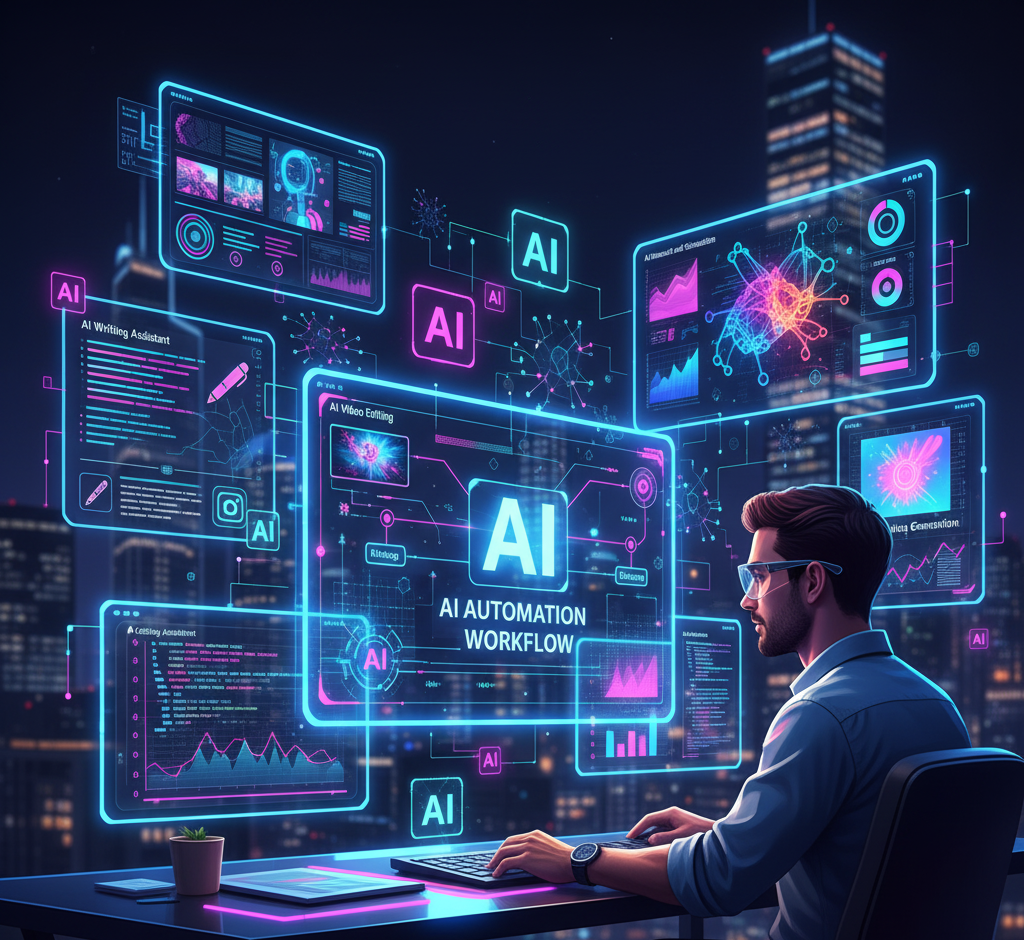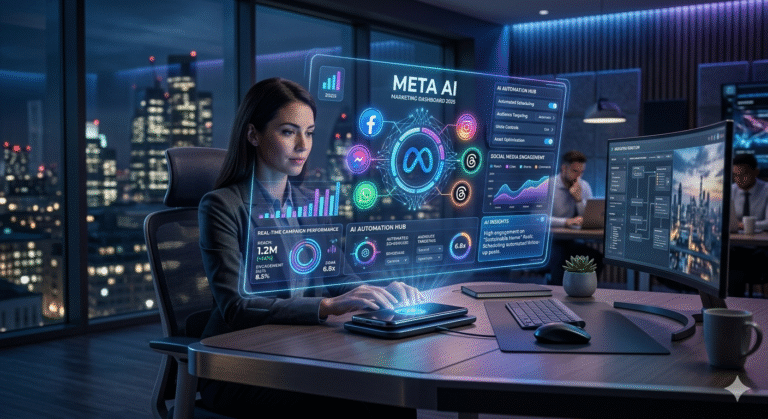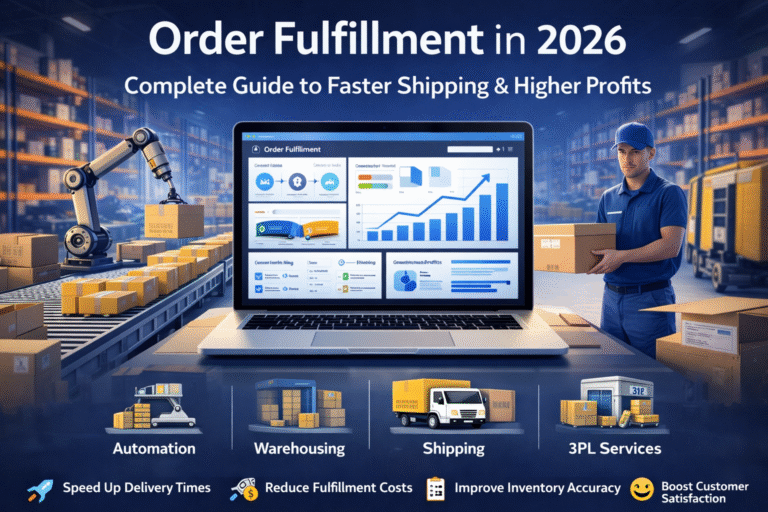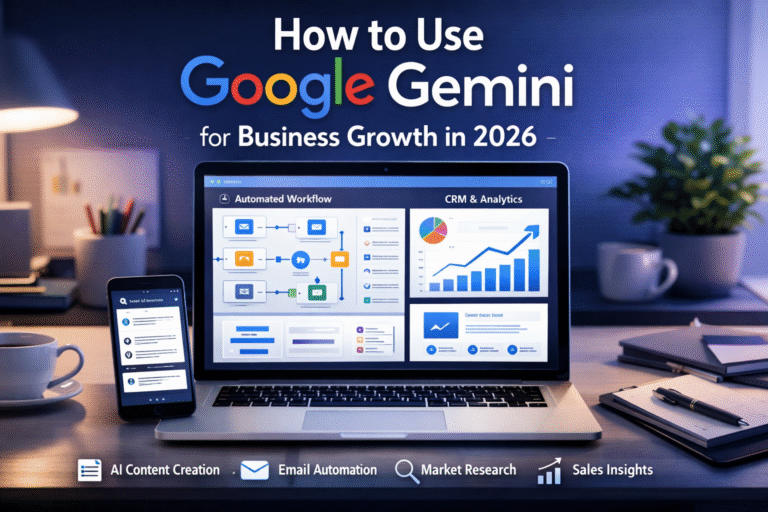
Explore the best AI tools 2025 for business, creativity, and research
General AI Tools 2025: Transforming Business, Creativity & Research
The AI revolution continues to reshape industries in 2025. From business automation, content generation, marketing, SEO, to creative arts and scientific research, AI tools are becoming indispensable. This guide explores the best AI tools and platforms for businesses, creators, researchers, and developers.
1. Introduction: The AI Landscape in 2025
Artificial Intelligence (AI) has become central to modern business operations and creative workflows. In 2025, AI adoption is accelerating due to advancements in machine learning, natural language processing (NLP), computer vision, and automation.
Key Highlights:
-
Businesses use AI for efficiency and productivity.
-
Creators leverage AI for content generation, design, and video editing.
-
Researchers apply AI in medical, pharmaceutical, environmental, and space studies.
AI tools reduce manual effort, provide actionable insights, and enhance decision-making across sectors.
2. AI Tools for Business Productivity
Modern enterprises rely on AI tools to streamline operations and boost efficiency.
Popular Business AI Tools 2025:
-
AI Writing Assistants: Generate reports, emails, blogs, and documentation.
-
AI Coding Assistants: Automate coding, detect errors, and optimize algorithms.
-
AI Automation Tools: Workflow automation for HR, finance, and operations.
-
AI Analytics Tools: Advanced data analysis for performance insights.
-
AI Customer Support Tools: Chatbots, virtual assistants, and ticketing automation.
Benefits:
-
Reduce human error
-
Accelerate workflow
-
Enhance team productivity
-
Improve customer satisfaction
3. AI Platforms: Enterprise & Startup Solutions
AI platforms offer scalable solutions for developers, marketers, educators, researchers, and content creators.
Types of AI Platforms:
-
For Startups: Rapid prototyping, AI model integration, low-code/no-code solutions.
-
For Enterprises: Enterprise-grade AI for automation, analytics, and security.
-
For Developers: APIs, AI frameworks, and cloud computing tools.
-
For Marketers: AI-powered campaign optimization, personalization, and lead generation.
-
For Educators & Researchers: AI-driven content analysis, grading, and scientific modeling.
-
For Content Creators: AI video editing, image generation, music composition, and storytelling.
Platforms provide cross-industry solutions enabling businesses and creators to implement AI without heavy infrastructure costs.
4. AI in SEO & Marketing
AI has revolutionized digital marketing by enabling smarter decision-making.
Key AI Marketing Tools:
-
AI Keyword Research: Identify high-potential SEO keywords.
-
AI SEO Optimization: Optimize website structure and content.
-
AI Content Writing: Generate SEO-friendly blog posts, product descriptions, and social media content.
-
AI Backlink Analysis: Monitor backlinks and competitor strategies.
-
AI Social Media Marketing: Optimize posting schedules and content recommendations.
-
AI Email Marketing: Personalize campaigns, predict engagement, and segment audiences.
-
AI PPC Campaigns: Automate bidding and optimize ad placements.
Advantages:
-
Higher ROI
-
Faster decision-making
-
Personalized customer experience
-
Efficient marketing budget allocation
Digital Banking India
India has emerged as a global leader in digital banking. Over the past decade, technological advancements have transformed the way people access, manage, and transact money. The rise of Unified Payments Interface (UPI), neobanks, mobile wallets, and AI-powered fintech solutions has enabled seamless financial services for millions of users.
5. AI in Creative Fields
AI is reshaping graphic design, video editing, music, animation, and storytelling.
Popular AI Creative Tools:
-
AI Graphic Design: Canva AI, Adobe Firefly.
-
AI Video Editing: Runway ML, Pictory, Synthesia.
-
AI Music Composition: Amper Music, Aiva.
-
AI Animation: DeepMotion, Adobe Character Animator.
-
AI Photography: AI image enhancers, generative art tools.
-
AI Game Development: Procedural content generation, AI NPC behavior.
-
AI UX/UI Design: Automated interface design and usability testing.
-
AI Fashion & Interior Design: AI-assisted concept visualization.
AI enhances creativity, saves time, and allows creators to experiment with ideas rapidly.
6. AI in Research & Development
AI accelerates scientific discovery, medical research, and technological innovation.
Key Applications:
-
Medical & Pharmaceutical Research: AI-driven drug discovery, diagnostics, and clinical trial analysis.
-
Biotechnology: Genome sequencing, protein folding prediction, and lab automation.
-
Environmental Studies: AI models predict climate change, pollution, and conservation strategies.
-
Space Exploration: AI assists satellite image analysis and trajectory calculations.
-
Quantum Computing: AI-powered algorithms for quantum simulations.
-
Robotics & Nanotechnology: AI in autonomous systems and microscopic engineering.
-
Engineering: Design optimization and predictive maintenance using AI.
AI tools accelerate innovation, reduce experimentation costs, and enable complex simulations.
7. AI Tools for Content Generation
Content creation has been transformed with AI-driven writing, video, and image generation tools.
Examples:
-
Text: Jasper, ChatGPT, Writesonic for blogs, emails, and social media posts.
-
Video: Synthesia, Pictory for automated video production.
-
Images: DALL·E, MidJourney, Stable Diffusion for AI-generated graphics.
AI helps creators produce high-quality content quickly, maintain consistency, and scale campaigns efficiently.
8. AI Automation & Workflow Tools
AI reduces repetitive tasks across business, marketing, and operations.
Examples:
-
Zapier AI: Automate app integrations and workflows.
-
Notion AI: Organize tasks and content.
-
Trello AI: Predict project bottlenecks and automate task assignment.
Benefits:
-
Save time on repetitive tasks
-
Improve team efficiency
-
Enhance cross-department coordination
9. AI Platforms for Developers & Data Scientists
AI platforms for technical users include:
-
Google AI Platform: Cloud-based AI development.
-
Azure AI: Machine learning and data modeling.
-
OpenAI API: NLP, chatbots, and code assistance.
-
Hugging Face: Pre-trained models for NLP tasks.
-
DataRobot: Automated ML and predictive analytics.
These platforms allow developers to build, deploy, and monitor AI models without deep infrastructure requirements.
10. Future of AI Tools 2025 & Beyond
-
AI will be ubiquitous: Across business, creative, research, and everyday applications.
-
Increased personalization: AI will deliver highly tailored content and recommendations.
-
Enhanced automation: AI will handle complex multi-step workflows.
-
Cross-industry integration: AI will merge with IoT, robotics, and blockchain.
-
AI governance and ethics: Compliance and security standards will become crucial.
Businesses, creators, and researchers adopting AI tools early will gain a competitive edge.
Conclusion
AI tools in 2025 are redefining productivity, creativity, research, and marketing. From AI platforms for enterprises and startups, content creation, SEO, marketing automation, to scientific research, the impact of AI is massive.
Adopting AI early ensures efficiency, scalability, and innovation, making businesses and creators more competitive in the global market.





King567, the login process was super smooth using king567login.com. No hiccups at all. If you’re looking to jump in, use this link! Head over to king567login
Bet88comvn, alright lads, this site’s got a smooth interface and a good selection of games. I’ve had decent luck there, and the bonuses are alright. Give it a burl: bet88comvn
Just signed up to f8betlgoptimusl9. The site looks decent, let’s see if the odds are any good! Wish me luck haha.
Jljl30… Hmmm, curious. Never heard about this one before! Time to dive in and see what it is. Perhaps it is good. Find out yourself at jljl30